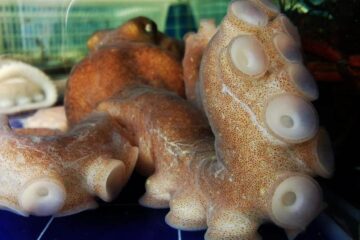Key to out-of-control immune response in lung injury found

Acute Respiratory Distress Syndrome, or ARDS, is an often fatal complication of severe traumatic injury, bacterial infections, blood transfusions and overdoses of some medications. In ARDS, the lungs become swollen with fluid and breathing becomes impossible. Thirty percent to 40 percent of patients die. There is no effective treatment.
Sepsis, an overwhelming bacterial infection of the blood and organs, is the most common cause of ARDS. When the immune system responds to the infection, molecules called inflammatory cytokines and chemokines are released. These molecules attract inflammatory white blood cells and destroy bacteria, but also lead to fever, swelling and other symptoms of shock and can wreak havoc on the patient in the course of fighting off the infection.
“Without an inflammatory response, bacterial invaders in the lungs can kill, but too intense a response can also be fatal,” said Kurt Bachmaier, UIC research assistant professor in pharmacology and first author of the study. “We need a better understanding of how the immune system modulates this defense so that we can understand what goes wrong in life-threatening lung failure.”
The researchers created a mouse model that lacks the gene for a protein, called Cblb, which was known to play a crucial role in chronic inflammation and auto-immunity through regulation of T- and B-cells.
When sepsis was induced in mice with and without the Cblb gene, there was a marked difference in the level of the inflammatory response and survival. Mice lacking the Cblb gene were much less likely to survive than control mice.
The UIC researchers were able to show how Cblb regulates the immune response. They showed that in normal mice, a receptor found in lung tissue that induces the release of inflammatory cytokines and chemokines disappears from the cell surface after about an hour, ending the signaling of the immune response.
In the Cblb-deficient mice the receptor stays on the surface, and the inflammatory response is not turned off.
The researchers were also able to show that a protein that controls the production of inflammatory cytokines, called NF-kB, is induced in lung tissue after sepsis by that receptor to a much greater extent from the Cblb-deficient mice than in normal mice. NF-kB is known to induce swelling of tissues.
“There are already early-stage drug trials of treatments for ARDS targeting NF-kB,” said Bachmaier. “This discovery has real clinical implications in the treatment and prevention of life-threatening lung failure.”
Cblb is a potential drug target that may lead to a new class of anti-bacterial drugs, says Dr. Asrar Malik, distinguished professor and head of pharmacology and a senior author on the paper. Malik and Bachmaier have recently filed a patent on the basis of these findings.
Media Contact
More Information:
http://www.uic.eduAll latest news from the category: Life Sciences and Chemistry
Articles and reports from the Life Sciences and chemistry area deal with applied and basic research into modern biology, chemistry and human medicine.
Valuable information can be found on a range of life sciences fields including bacteriology, biochemistry, bionics, bioinformatics, biophysics, biotechnology, genetics, geobotany, human biology, marine biology, microbiology, molecular biology, cellular biology, zoology, bioinorganic chemistry, microchemistry and environmental chemistry.
Newest articles

Technical Trials for Easing the (Cosmological) Tension
A new study sorts through models attempting to solve one of the major challenges of contemporary cosmic science, the measurement of its expansion. Thanks to the dizzying growth of cosmic…

Peptides on Interstellar Ice
A research team led by Dr Serge Krasnokutski from the Astrophysics Laboratory at the Max Planck Institute for Astronomy at the University of Jena had already demonstrated that simple peptides…

Octopus inspires new suction mechanism for robots
A new robotic suction cup which can grasp rough, curved and heavy stone, has been developed by scientists at the University of Bristol. The team, based at Bristol Robotics Laboratory,…





















